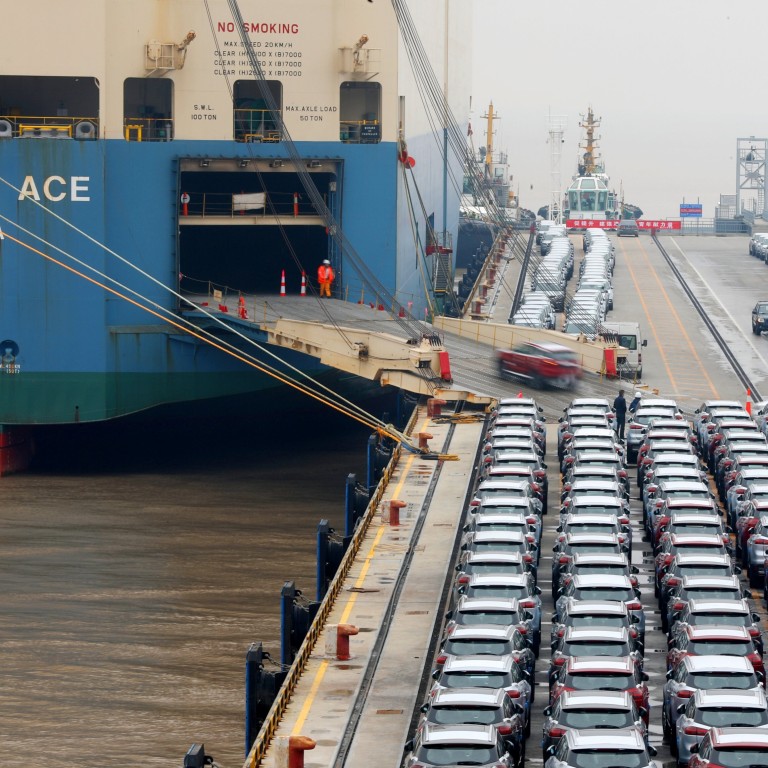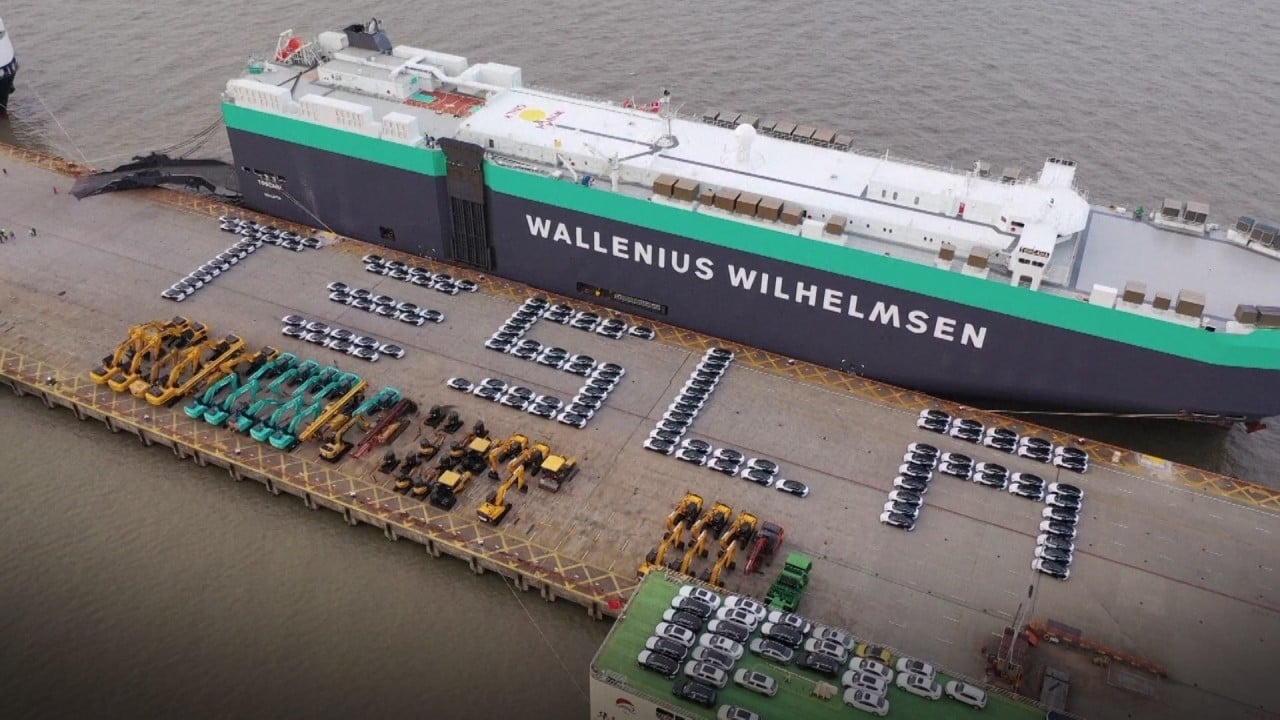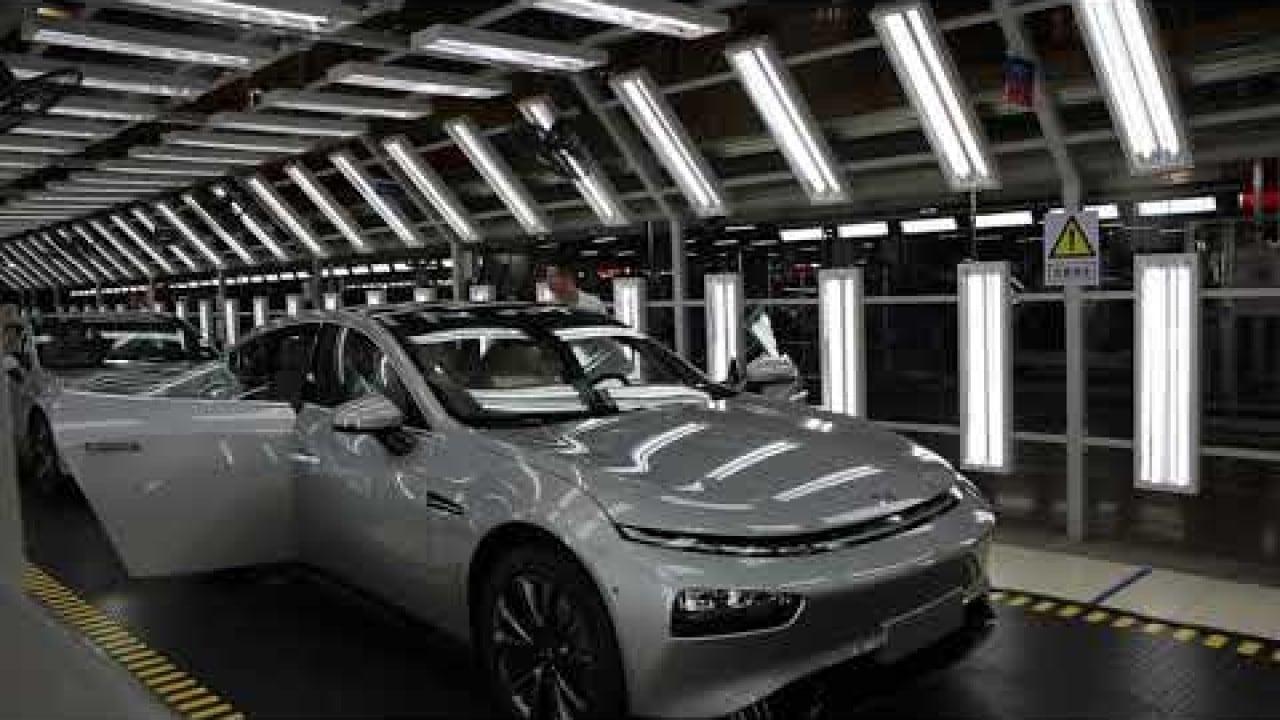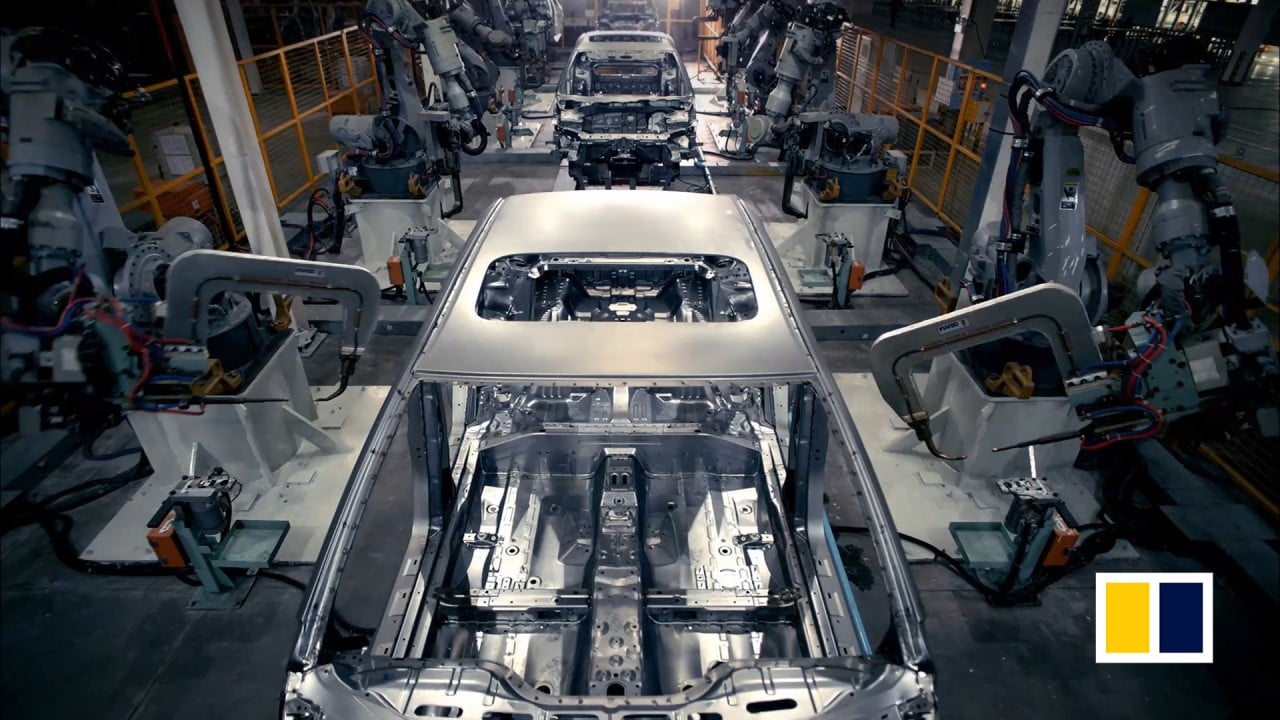
China’s carmakers are beating internet start-ups in the battle for supremacy in the world’s largest electric vehicle market
- Conventional carmakers have grabbed a bigger market share, China Passenger Car Association data shows
- Established carmakers ‘have not been eclipsed by Tesla and the Tesla challengers yet’
Beijing’s encouragement has fired up China’s new energy vehicle sector, pitting start-up electric vehicle (EV) makers against its more established conventional carmakers.
“Conventional carmakers still have an upper hand over the upstart EV makers in terms of production capabilities and sales networks,” said Peter Chen, an engineer with car components company TRW. “They have not been eclipsed by Tesla and the Tesla challengers yet.”
China’s new-energy vehicle (NEV) segment, which covers pure electric, hybrid and fuel cell-powered cars, was the lone bright spot worldwide in the second half of this year, as lockdowns forced factories in the West to shut because of the coronavirus pandemic. Beijing’s cash subsidies and tax exemptions also played their part.

01:16
Tesla exports first China-made cars to Europe with shipment of 7,000 Model 3 electric sedans
An imminent surge in demand – spurred by government-backed incentives – for EVs in the world’s largest car market is drawing multi-trillion yuan investment and talent, while also whetting an appetite for a larger proportion of the pie among the established players.
China Passenger Car Association data shows that conventional carmakers, including ventures between foreign giants and local companies, have grabbed a bigger market share. Of the 10 bestselling marques in November, eight were domestic carmakers, as low-priced EVs made by Great Wall Motors, BYD and Chery proved to be a hit among younger Chinese drivers.

01:56
Inside Chinese electric vehicle maker Xpeng's factory in Zhaoqing city
Hongguang Mini EV, an all-electric minicar built by SAIC-GM-Wuling Automobile, a three-way partnership involving China’s largest state-owned carmaker and General Motors, clinched the top spot for a third consecutive month in November by selling 33,094 cars.
“In the future, we will closely gauge customer demand to develop entry-level EVs,” said Zhou Xing, the joint venture’s marketing director. “EV products will be more diversified and individualised based on people’s different habits and demands for transport.”
In comparison, Tesla, in second position, sold 21,604 Model 3s.
China puts electric-car makers on notice after tightening oversight on fintech companies
“Every first-time middle-class car buyer interested in owning an EV now picks the Tesla Model 3, because they view it as a fashionable car with mature technology,” said Tian Maowei, a sales manager at Yiyou Auto Service in Shanghai. “But those looking for EVs to replace their conventional cars will buy hybrids and pure electric cars made by established brands, such as Volvo and Honda.”
Miao Hua, a sales manager with a payment services company in Shanghai, bought a Volvo XC40 plug-in hybrid worth more than 350,000 yuan recently. “This is my dream auto brand,” the 45-year-old man said. “Conventional car brands have the best styling, carmaking technology, production and workers. They just need to gradually shift their focus from conventional cars to NEVs.”
Booming sales have catapulted Tesla into the top spot, making it the world’s most valuable carmaker. Chinese carmakers have been buoyed by strong investor belief in their growth potential – NIO was valued at about US$62 billion when its stock soared ninefold to a record US$57.20 in November, making it worth more than the century-old Ford Motor Company.

01:47
Behind the scenes at BYD Auto: China’s biggest electric vehicle factory
Conventional carmakers, however, have an upper hand. “The established players, all of whom already have their own NEV brands and production, will stage a comeback and still have an overwhelming advantage in terms of sales volumes,” said Qian Kang, who owns a Zhejiang-based car components company. “The question is whether they can upgrade their technology to play a leading role in defining the future of mobility.”
NIO, for instance, has about 180 dealers in China, less than 10 per cent of the network Volkswagen, which has three joint ventures in the country, has access to.
What does the perfect electric vehicle look like in China?
Opportunities will arise for conventional carmakers once the NEV market grows to a certain scale, said Eric Li, a consultant with Boston Consulting Group. “Powerful automotive firms will be active in developing middle and high-end products in a transition that creates a new battleground for all competitors.”


